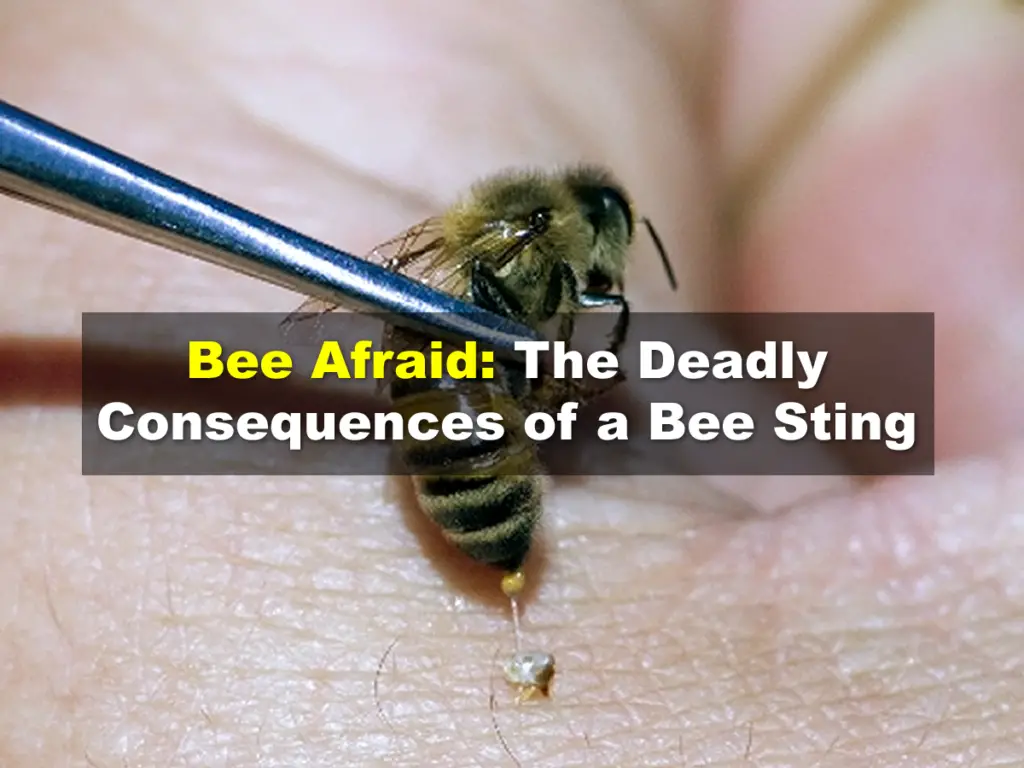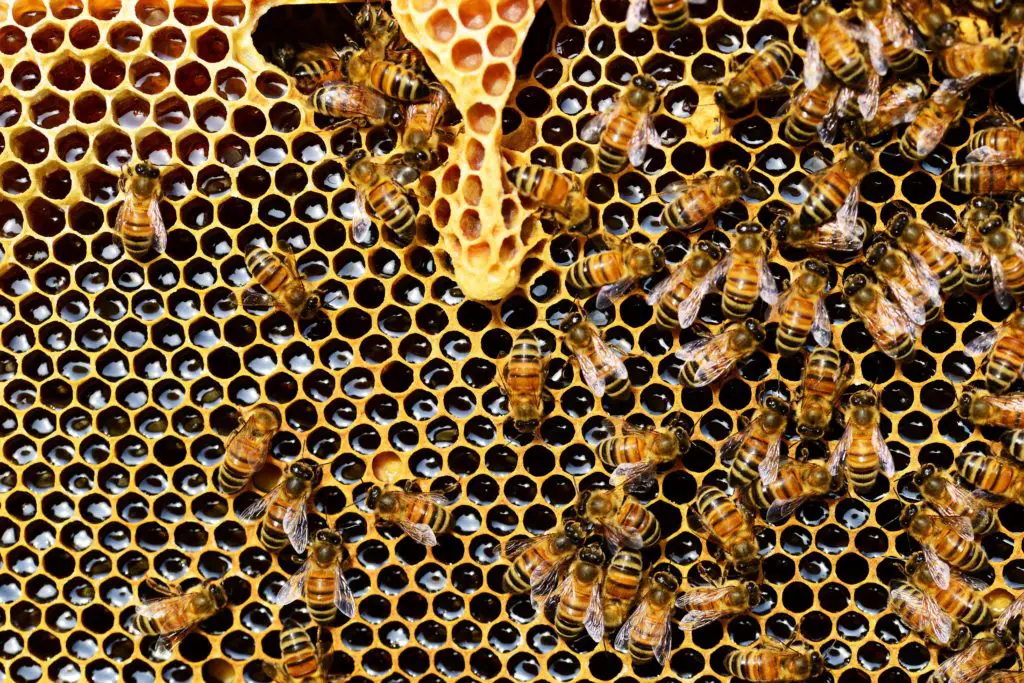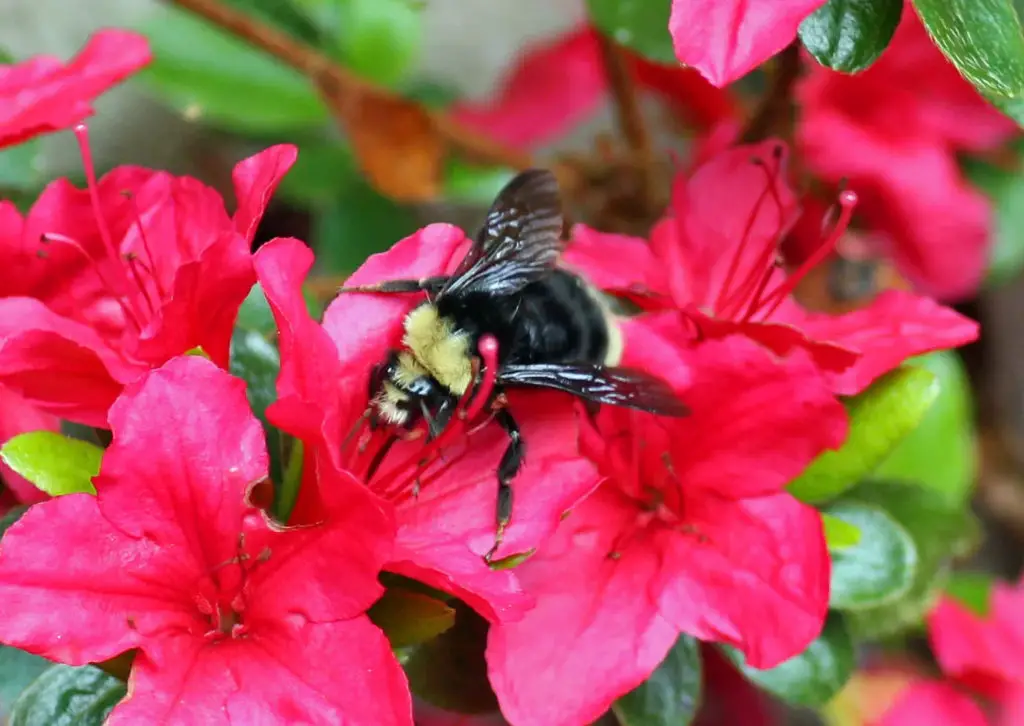Affiliate Disclaimer - As an Amazon Associate I earn from qualifying purchases.
It supports the website. So, Thank you
I often find myself telling my children not to panic when a honey bee flies by. While a lot of people worry that they’ll get stung, it’s important to keep in mind that bees are not usually aggressive animals and will only sting when they feel threatened.
You may have heard the rumor that they only sting when they absolutely have to because stinging actually kills them. But what’s the truth? Do bees die when they sting?
For several bee species, using their stinger means certain death. The reason for this is that the stinger becomes lodged in their victim, ripping away from the bee’s body and leaving a gaping wound that is 100% fatal.
It all sounds terrifying, doesn’t it? Well, it is if you’re a bee but for us humans, it’s good news since honey bees will be reluctant to sting unless absolutely necessary.
Table of Contents
What Is A Bee Stinger?
Not all bees have stingers. Where honey bees are concerned, it is only the females that have stingers. The males, known as drones, do not. What’s more, there are several types of stingless bees in the world. However, while they lack a stinger, they’ll often defend themselves in other ways such as biting.
Where there is a stinger, it may vary between species. Some have a smooth stinger but one of the most common, and the one that causes a bee to die after using it, is the barbed stinger.
This is a feature of female honey bees and is made up of three parts. There are two barbed slides, called lancets and a stylus. The lancets are used to force the stinger into the victim so that the bee does not have to push it in. Each slide moves alternatively and this enables the sting to penetrate. What’s fascinating is that, even once the stinger has detached from the bee, the lancets keep working to drive the stinger further in.
Another question that most people want to know is whether bees are venomous. Bee venom contains toxins called melittin and histamine. However, these are rarely dangerous to humans and usually cause nothing more than a mild to a moderate reaction which can include swelling, itching, stinging, and redness.
That said, there are a small minority of people that have a severe allergy to bee venom and will need to seek emergency medical treatment in the event of a sting.
Why Do Bees Die When They Sting You?
Not all species of bee will die when they sting you. For example, the bumble bee, a common visitor to your garden, can sting you and fly away unscathed. Of course, these are very docile creatures and won’t typically sting unless they feel threatened so you really have nothing to worry about if you come into contact with one.
On the other hand, honey bees, with their barbed stingers, face certain death if they dare to use them. It’s thought that the bee isn’t aware of their fate when using the sting but this isn’t the reason that they’re reluctant to attack.
Most honey bees will go about their business with little to no human contact. Even when they’re present in your garden, they won’t bother you unless you give them a reason to. When they do attack, it’s usually because they are looking to defend their hive which is a matter of life or death.
And when I say death, I mean it literally since the honey bee’s stinger will become lodged in the victim and be torn away from the rest of the body. Gruesomely, it’s even thought that some of the bee’s internal organs are ripped away at the same time, including parts of the digestive system since the stinger is attached on the inside.
Needless to say, an injury like this is not something any animal could recover from so once they’ve used their stinger, it’s sayonara for the bee.
What To Do If You’re Stung By A Bee
The idea of being stung by a bee isn’t the most pleasant thing in the world. I’d urge you to leave bees alone as much as possible as this is the best way to avoid being stung in the first place.
Of course, a lot of people aggravate bees accidentally and only realize they’ve upset these little critters after a sting has been delivered.
If you know that you have an allergy to bee stings then it’s vital to access medical attention immediately. In some cases, those with allergies could lose their lives if they don’t receive treatment.
However, for most of us, a bee sting is something that can be treated at home. It’s recommended not to remove the stinger using tweezers as this could release more venom. Taking your finger or a piece of gauze and running it over the part of the skin where the stinger has gone in is the best, and safest way to get it out.
Once the stinger is removed, you’ll need to make sure the area is clean and you can then apply a cold pack to bring down any swelling.
For some people, the pain of a bee sting can be quite uncomfortable so using over-the-counter pain medication is a brilliant way of managing this. Fortunately, any discomfort and swelling should subside within a couple of days.
Final Thoughts
I have a lot of people ask me do bees die when they sting and I think there’s a bit of uncertainty over whether this is just an old wive’s tale or not.
Sadly for the bees, it’s true; at least in some species. Honey bees have barbed stingers that get lodged in the skin and, when the bee moves away, the stinger is ripped from its body causing a fatal wound.
Other bee species don’t suffer the same terrible fate but they’re still unlikely to sting you. Fortunately, most bees, aside from the Africanized bee, are pretty gentle creatures that just want to get on with their buzziness!




